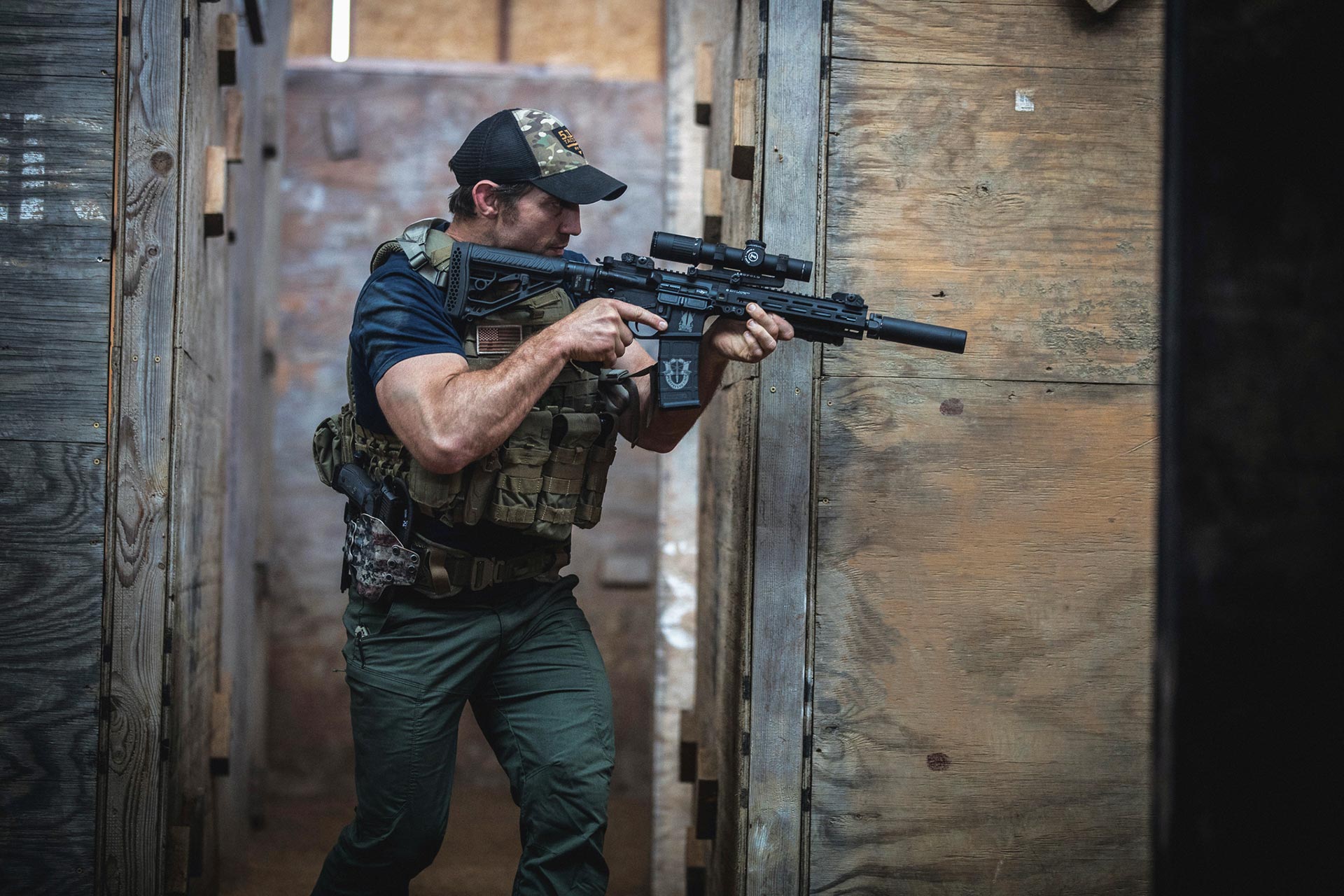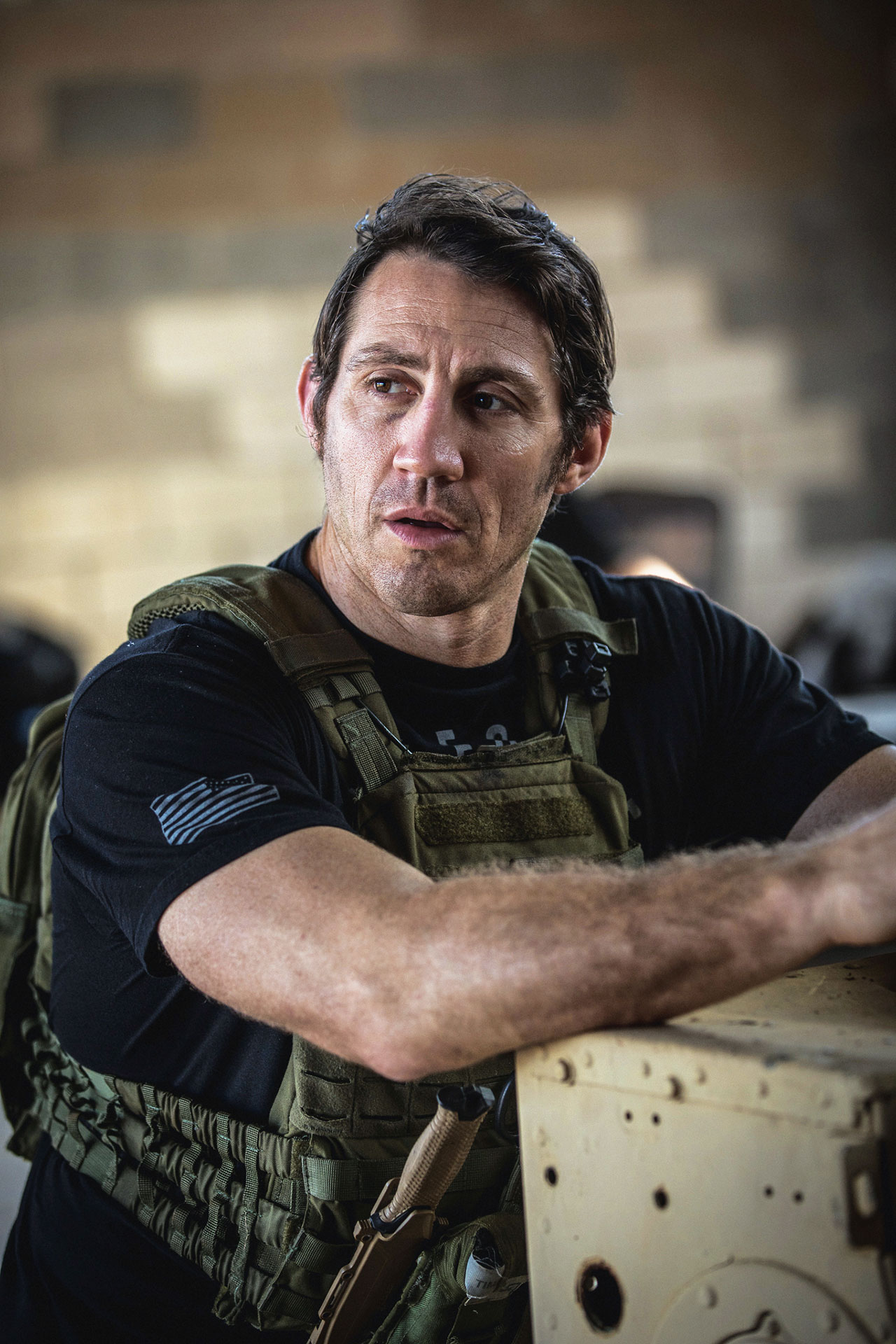

Editor’s note: This article, reprinted with permission, originally appeared in the summer 2023 issue of The California Narcotic Officer, the official publication of the California Narcotic Officers’ Association (CNOA). Tim Kennedy will be the General Session speaker at CNOA’s upcoming 59th Annual Training Institute this November in Sparks, Nevada. Don’t miss his presentation on “Passion, Commitment and Service,” based on his life experiences. For more information, visit tinyurl.com/4mzf67bh.
A prepared law enforcement officer is a protector for the people. They must possess the necessary physical strength, fighting skills and accuracy with firearms. Tenets of a protector are a high level of physical fitness, proficiency in various forms of hand-to-hand combat and expert marksmanship skills. Well-trained law enforcement officers are better prepared to face any physical threat that may endanger their community and ensure the safety of all citizens.
Could you pull or carry your partner to safety? As fitness and agility play a crucial role in their ability to serve and protect the public, law enforcement officers must be in peak physical condition. Therefore, fitness regimens must include a combination of shooting, martial arts and other exercises that help make law enforcement personnel more physically fit and prepared for their profession. If you have a weapon malfunction, do you know how to stay in the fight? Shooting is an integral part of the law enforcement profession. Officers must be highly proficient in using firearms and be able to hit targets at various distances while maintaining accuracy and controlling heart rate and breathing. Working through malfunctions, shooting in different positions of cover and concealment, multiple stances and single-handed, to include the nondominant hand, are critical to real-world shooting proficiency. Consistently trained skills become second nature, as most people revert to gross motor control under the highest stress levels. An officer’s training determines how they respond to a real-world threat. If a suspect pulls a weapon on you, do you know how to control the hand and make space to survive the event? Martial arts are essential to law enforcement’s physical fitness because they help develop strength, skill and agility. In addition, martial arts, like Brazilian jiu-jitsu, give officers an understanding of leverage, positioning and force, elements used when confronting, controlling or arresting suspects. During an altercation, officers must be able to defend themselves against resisting subjects, defuse dangerous situations and exercise adequate control. Officers who cannot protect themselves using non-lethal force because of a lack of ability or training must escalate to deadly force before it is necessary.
Do you drink energy drinks and eat food packed with preservatives that cause brain fog and other health problems? Apart from regular exercise and physical fitness, a healthy diet is essential to the well-being of a law enforcement officer. Eating well-balanced meals rich in vitamins, minerals and other nutrients ensures officers get the nutrition and energy needed to perform their job. Cognitive function, mental resiliency, strength of immune systems and the ability to deal with high stress levels are directly tied to proper nutrition. Consistent mealtimes and adequate hydration aid in better concentration and attention.
Neglecting a healthy nutritional lifestyle degrades an officer’s ability to respond to emergencies and jeopardizes their readiness as a teammate. These tenets of being a protector ensure physical readiness, giving officers the confidence they need to perform their duties effectively. Being healthy gives officers the physical stamina to sustain long shifts, the flexibility to respond to any situation and the mental clarity to make sound decisions. A high level of physical fitness creates confidence; that confidence improves how you carry yourself, and how you carry yourself is a form of nonverbal communication in controlling your environment. In addition to being a physically prepared protector, strong communication skills and knowledge of police procedures are requirements for a law enforcement officer.
Officers are the protectors of our society. High levels of fitness, marksmanship and combatives training are essential components that help officers have the necessary skills to defend themselves and the community. Through such training, law enforcement officers can respond effectively to threats. Be prepared for any emergency. Be a protector.
As seen in the August 2023 issue of American Police Beat magazine.
Don’t miss out on another issue today! Click below:





